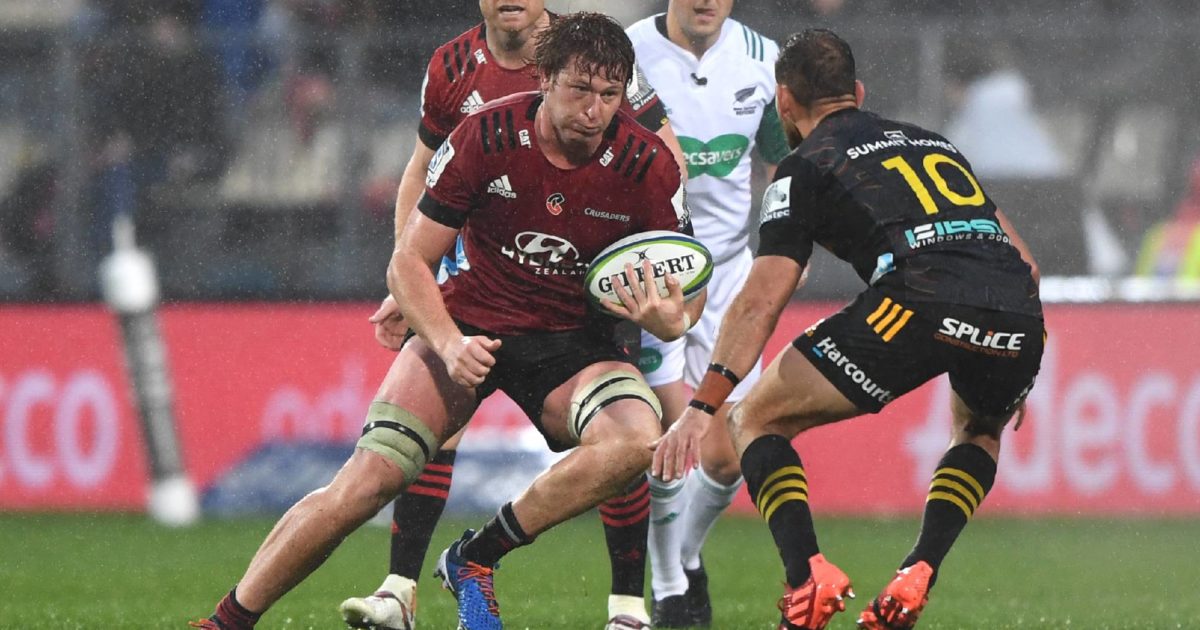'Prototype of the new breed': What Cullen Grace's surprise All Blacks call-up means for the next World Cup

No one picked Cullen Grace to be an All Black so soon.
Even after turning heads in Super Rugby back in February-March, Grace was thought to be merely full of promise. His time would come, they said.
But named he was in the extended All Blacks squad on Sunday. That does not mean he was a bolter, despite the fact he had played just three games – most recently the Shield defence against North Otago on August 28 – since March. A broken thumb rubbed him out for two months.
That bolter moniker is more correctly applied to lock Quinten Strange, because we thought he had not played enough rugby (even less than Grace), and loosehead prop Alex Hodgman, good for the Blues, but who strangely didn’t feature for the North in the inter-island clash.
Grace is 20 and has a frame that John Plumtree must like. He is fearless, tough, rugged and raw. But he’s also, crucially, a prime lineout target. Just seven men won more lineouts then him in pre-Covid Super Rugby. He can play three positions, including No 8, but possibly, like Tom Robinson, lacks 3-4 centimetres to be classed as a compelling international locking prospect. That said, his height has been variously listed as 1.90m, 1.92m, and 1.93m in the last two years. So he has had either a late growth spurt or there are some creative number-crunchers at the Crusaders.
Canterbury coach Reuben Thorne likes the cut of Grace’s jib, first encountering him when he was coaching Christ’s College when Grace was clattering bodies and throwing himself into rucks as skipper of the Timaru BHS First XV. He cracked the NZ Schools later that year (2017). That was a very strong side and his locking partner was none other than Tupou Vaa’i, younger by a month and now named in the All Blacks.
Vaa’i and Grace both featured in the 2019 NZ Under 20s, not a vintage crop. There were whispers about a soft underbelly to the pack, but both have swiftly graduated from this time-honoured pathway.
Grace’s elevation is a further reminder of how far Vaea Fifita has fallen. Once seen as the new breed of All Blacks forward – powerful, fast, athletic – Fifita is now nowhere and will need to do something miraculous in Mitre 10 Cup for him to be looked at again.
The seven loose forwards named in the All Blacks are bursting with talent and versatility, all able to play at least two, and sometimes, three positions. There is a case to be made for Grace being the best lineout forward amongst them, which will make him hot property to make the bench at the least. Shannon Frizell is the only other one who could suit up at lock, but that would be a last resort. It makes you now appreciate how valuable Jackson Hemopo was in a squad situation.
Grace has more meat on his bones than a Tom Robinson and, further back, Norm Maxwell, who also flung his body around with almost reckless abandon. With a touch of luck and losing a tendency to break his body at the wrong time, Robinson could have been Cullen Grace on Sunday.
https://www.instagram.com/p/CExhy0sBXkz/?utm_source=ig_web_copy_link
Now we see the bare bones of what the All Blacks selectors are seeking three years out from the next Rugby World Cup. They want all their loose forwards tough, physical and ball winners. The likes of Luke Jacobson and Lachie Boshier, both outstanding on the tackle and over the ball, will have to join the queue.
Grace is the prototype of the new breed. Twelve months ago, he was biding his time as the third lock at Canterbury, behind Luke Romano and Mitch Dunshea. The respected Rugby Almanack said he “showed promise” in his four outings.
But even at the Crusaders there was no guarantee of much game time. Ethan Blackadder was in line to wear the No 6 jersey until shoulder surgery meant he was not going to fill Jordan Taufua’s boots. Sione Havili was seen as a super sub. The under-rated Tom Sanders could play eight or six, with the equally under-rated Whetu Douglas also an option in both those positions.
Grace’s first start was at a February Eden Park against the Blues, who were buoyant about what their loose trio of Hoskins Sotutu, Blake Gibson and Dalton Papali’i could do, especially at the breakdown. As it transpired, Sanders, Tom Christie and Grace won a clear points victory, harassing them on the ground and Grace pinching their ball in the air.
Seasoned Eden Park observers nodded their heads and muttered sagely: ‘This Cullen Grace has got the goods.” He does indeed have the goods and now we will see how far he has come, in a remarkably swift time, when he finally gets to wear black, God willing, in 2020.











































































